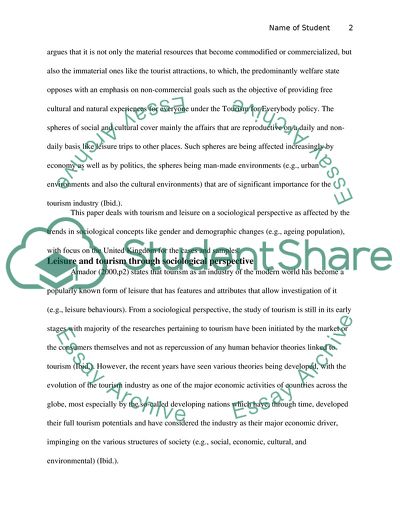Cite this document
(Sociology of Leisure and Tourism Coursework Example | Topics and Well Written Essays - 1500 words, n.d.)
Sociology of Leisure and Tourism Coursework Example | Topics and Well Written Essays - 1500 words. https://studentshare.org/sociology/1731191-sociology-of-leisure-and-tourism
Sociology of Leisure and Tourism Coursework Example | Topics and Well Written Essays - 1500 words. https://studentshare.org/sociology/1731191-sociology-of-leisure-and-tourism
(Sociology of Leisure and Tourism Coursework Example | Topics and Well Written Essays - 1500 Words)
Sociology of Leisure and Tourism Coursework Example | Topics and Well Written Essays - 1500 Words. https://studentshare.org/sociology/1731191-sociology-of-leisure-and-tourism.
Sociology of Leisure and Tourism Coursework Example | Topics and Well Written Essays - 1500 Words. https://studentshare.org/sociology/1731191-sociology-of-leisure-and-tourism.
“Sociology of Leisure and Tourism Coursework Example | Topics and Well Written Essays - 1500 Words”. https://studentshare.org/sociology/1731191-sociology-of-leisure-and-tourism.


